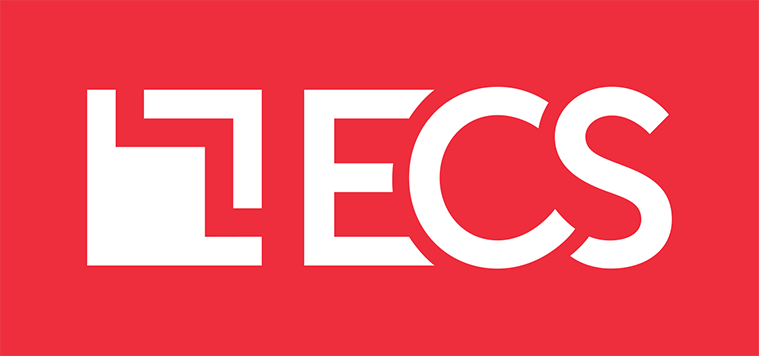Keeping up with the possibilities, and challenges, of technology in the workplace can be daunting. Everyone wants to work smarter, faster, and more efficiently. We need to collaborate, store, and calculate constantly—and all in a cybersafe environment. A lot of these functions are made possible by cloud. The power of cloud computing has never been more accessible, in terms of price or point of entry, but where should companies, organizations, and agencies begin? We talked to our vice president of cloud at ECS, John Sankovich, to find out what he thinks about the latest trends in cloud.
JOHN SANKOVICH
VICE PRESIDENT, CLOUD SOLUTIONS

Q: Should companies and organizations invest in training their own people to learn cloud technology?
A: Many of our customers rely heavily on the managed service provider (MSP) model—they call us in, and we take care of the cloud element of their enterprise from start to finish. However, there are some basic to advanced and expert-level skills that customers need to learn in order to take full advantage of what cloud can do. Often, we find that training our customers is a normal part of technology delivery. In short: the customer can’t know everything, especially when it comes to the capabilities of technology, and what’s possible in an enterprise. That’s why it makes sense to partner with a trusted advisor as an MSP to provide expert resources and lead your team through the process.
Q: When is it the right time to find a managed service provider?
A: Many companies are using cloud to function with more mobility and, of course, to deliver their own services with more ease and efficiency. As organizations increase their cloud adoption, they are more willing to consider additional outsourcing of more activities and full MSP offerings while they focus more on their own content operations—and less on the underlying technology that makes it all possible. For most organizations, there’s a cost-benefit analysis that happens around cloud. Embracing the “as a service” model can be a decision that makes sense in terms of saving both time and money.
Q: What is governance and why does it matter? What are the costs when adequate governance is lacking?
A: As cloud adoption continues to increase, more customers are experiencing a lack of enterprise governance and consistent, repeatable frameworks. This causes missed expectations and outcomes. Our Cloud CoE helps customers organize their priorities and look at the cloud adoption lifecycle holistically, from cloud strategy, roadmap, design, migration, and application modernization to cybersecurity, compliance, and support. We developed the ECS Common Cloud Framework for this very purpose: to deliver repeatable cloud best practices and tools that can be used to streamline the delivery of cloud solutions at the highest level.
Q: We’ve been hearing a lot about data breaches, and the problem doesn’t seem to be going away. What do organizations need to know?
A: Cybersecurity and cloud are deeply connected. Nothing makes this clearer than the recent data breaches we’ve read about in the news. Incidents like these highlight the need for enterprise security standards and monitoring. Customers are challenged to extend their security boundary from “on-prem” into the cloud for a holistic approach. Staying secure in the cloud requires an in-depth understanding of cyber as well as familiarity with the leading cloud service providers (CSPs) and how they function. Our team members have been educating customers about the cloud service shared responsibility model, which requires the customer to define security rules at the network level. It’s not just on the CSPs to watch traffic and prevent threats and attacks; the customer is responsible as well. We step in to help our customers lead an effective strategy with regard to cloud security.
Q: What are the benefits of a “multi-cloud” approach across cloud service providers?
A: The beauty of cloud is that it’s completely customizable and adjustable according to the specific needs of a customer. Amazon Web Services (AWS) was first to market, but increasingly customers are interested in multi-cloud approaches across AWS, Microsoft Azure, and Google, leveraging the innovation of these partners. Our premier and gold-level relationships with each of the CSPs are the highest levels awarded and give us a unique insight into which providers are best for specific needs within an enterprise. Cloud is a broad term that touches nearly every technological function in an organization, particularly as it relates to data and security. From what we’ve seen, a multi-cloud approach is an option to be considered as part of an overall cloud adoption framework and as part of defining a customer’s needs and solutions.
Q: It seems that as technology becomes more powerful and complex, some of the silos are falling away. What is DevOps and how does it relate to cloud?
A: DevOps, and now DevSecOps, is a collaborative approach to developing IT solutions. Development, cybersecurity, and operations teams work together, rather than in silos. The result is greater speed and reliability in technology delivery. At ECS, we also make sure to leverage cloud in the DevOps process. More customers are embracing a DevOps approach where development teams own the ongoing support of their applications across the full life cycle. This requires software developers to learn new cloud skills as they maintain and own the entire operating system stack.
Q: Cloud can be more cost-effective than on-premise datacenters, but the pricing systems seem complex. What do customers need to know?
A: Yes, customers save money by investing in cloud, but in order to make the most of the discounts, you really must have a clear grasp of your organization’s needs. This is because cloud providers are offering increasingly complex pricing systems which include reserved instances and enterprise plans that increase discounts based on term of service and volume commitment. Volume and term requirements are directly related to the unique needs of a specific organization. Customers require expert assistance to help make these multi-million-dollar commitments.





